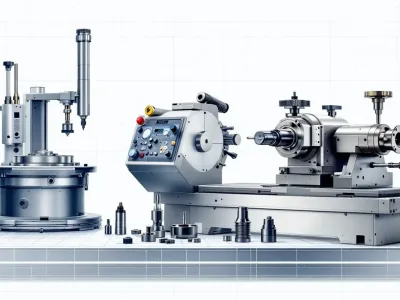
Machining Kovar involves dealing with its unique properties, such as low thermal expansion and high toughness. This guide covers the challenges and techniques needed for effective Kovar machining, including tool selection, heat management, and optimal CNC settings. Key Takeaways Kovar alloy features a low coefficient of thermal expansion, making it suitable for high-performance applications in electronics, aerospace, and medical devices. Machining Kovar presents challenges due to its toughness and low thermal conductivity, necessitating specific techniques and specialized cutting tools to ensure precision. Design considerations and post-machining treatments, such as pre-annealing and passivation, are critical for enhancing the machinability and performance…
Want to convert your CAD design into a sample prototype or small-batch production? Upload your files and get a fast and accurate quote.
